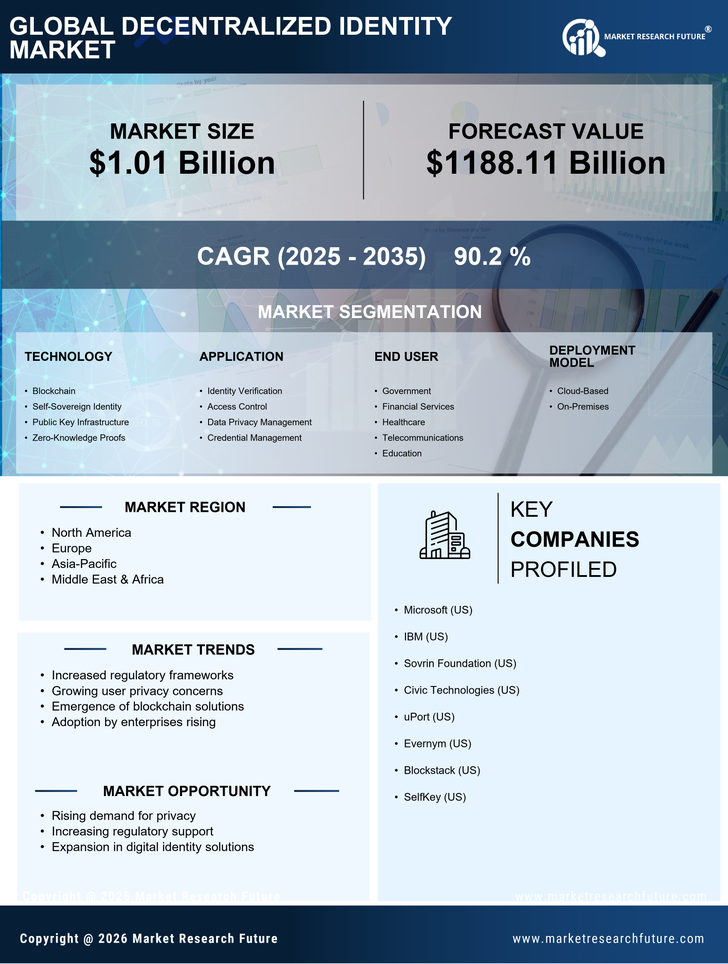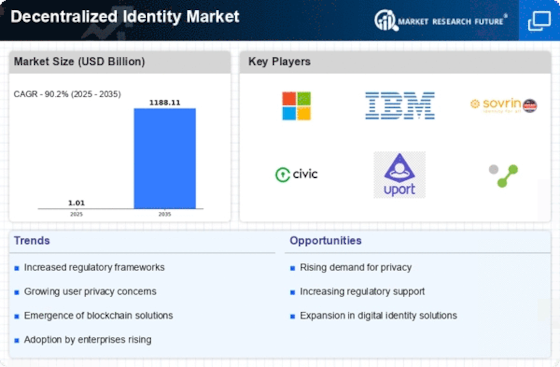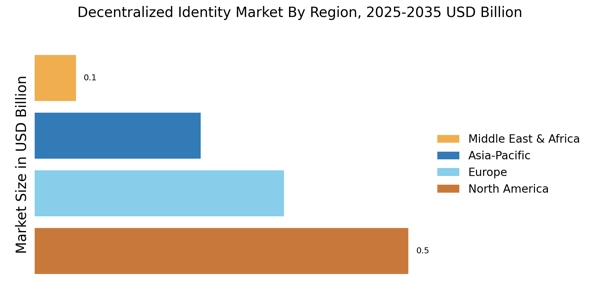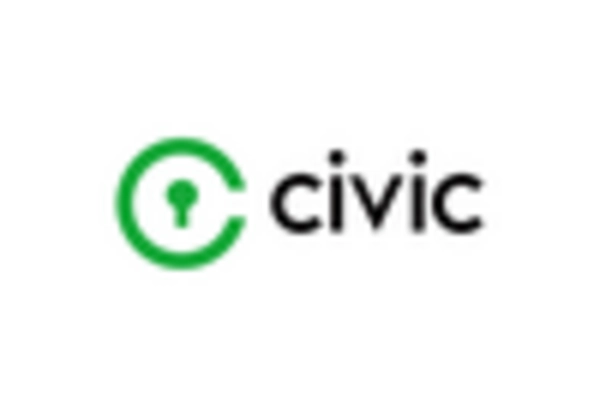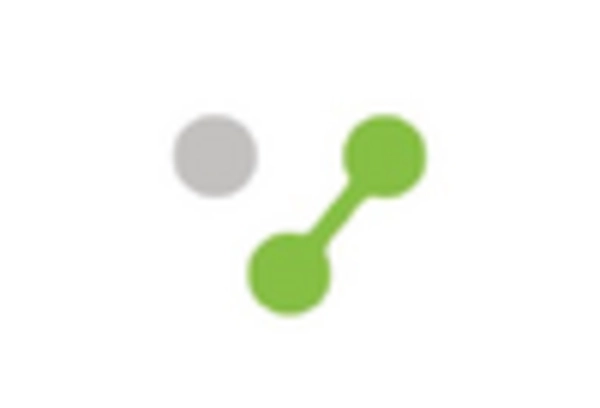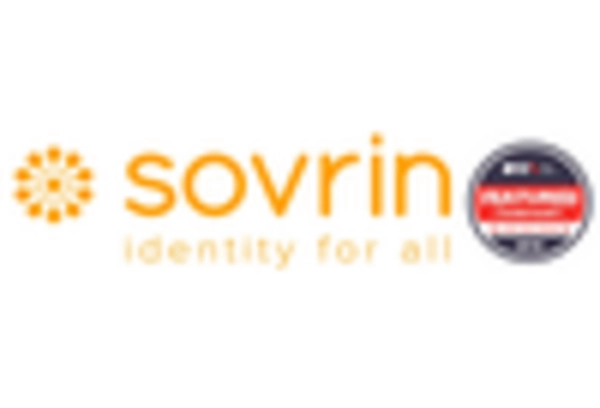Increased Regulatory Support
The Decentralized Identity Market is experiencing a shift due to increased regulatory support for digital identity solutions. Governments and regulatory bodies are recognizing the importance of secure identity management in the digital age. Initiatives aimed at establishing standards for decentralized identity systems are emerging, which could facilitate broader adoption. For instance, the European Union's Digital Identity initiative aims to provide citizens with a secure and user-friendly way to manage their identities online. Such regulatory frameworks are likely to enhance consumer confidence in decentralized identity solutions, potentially leading to a market expansion. As compliance with these regulations becomes essential, organizations are expected to invest more in decentralized identity technologies, further propelling the market forward.
Growing Adoption of IoT Devices
The Decentralized Identity Market is also being driven by the growing adoption of Internet of Things (IoT) devices. As the number of connected devices continues to rise, the need for secure identity management becomes increasingly critical. Decentralized identity solutions can provide a means to authenticate and manage identities for these devices, ensuring that data is protected and access is controlled. It is estimated that by 2025, there will be over 75 billion connected IoT devices, creating a substantial demand for decentralized identity solutions. This trend indicates a shift towards more secure and efficient identity management practices, as organizations seek to mitigate the risks associated with IoT vulnerabilities. Consequently, the decentralized identity market is poised for growth as it addresses these emerging challenges.
Advancements in Blockchain Technology
The Decentralized Identity Market is significantly influenced by advancements in blockchain technology. Blockchain provides a secure and immutable framework for identity verification, which is essential for decentralized identity solutions. The integration of smart contracts and distributed ledger technology enhances the reliability and efficiency of identity management processes. As organizations increasingly adopt blockchain for various applications, the decentralized identity sector is expected to benefit from this trend. Reports indicate that the blockchain technology market is anticipated to grow to USD 67 billion by 2026, which could further bolster the decentralized identity market. This technological evolution not only improves security but also fosters trust among users, thereby driving the adoption of decentralized identity solutions.
Rising Demand for Secure Digital Identities
The Decentralized Identity Market is witnessing a notable increase in demand for secure digital identities. As organizations and individuals become more aware of the risks associated with traditional identity management systems, the need for decentralized solutions is becoming more pronounced. According to recent estimates, the market for decentralized identity solutions is projected to reach USD 30 billion by 2026, reflecting a compound annual growth rate of approximately 25%. This surge is driven by the growing concerns over data breaches and identity theft, prompting businesses to seek more robust identity verification methods. Furthermore, the shift towards remote work and online services has accelerated the adoption of decentralized identity solutions, as they offer enhanced security and privacy features that traditional systems often lack.
Consumer Demand for Enhanced Privacy Controls
The Decentralized Identity Market is being propelled by consumer demand for enhanced privacy controls. As individuals become more conscious of their digital footprints, there is a growing expectation for solutions that empower them to manage their personal information. Decentralized identity systems offer users greater control over their data, allowing them to share only what is necessary while keeping the rest private. This shift in consumer behavior is reflected in market trends, with a significant portion of users expressing a preference for privacy-centric identity solutions. Surveys indicate that approximately 70% of consumers are willing to adopt decentralized identity solutions if they provide better privacy protections. This increasing demand is likely to drive innovation and investment in the decentralized identity market, as businesses strive to meet the evolving expectations of their customers.
